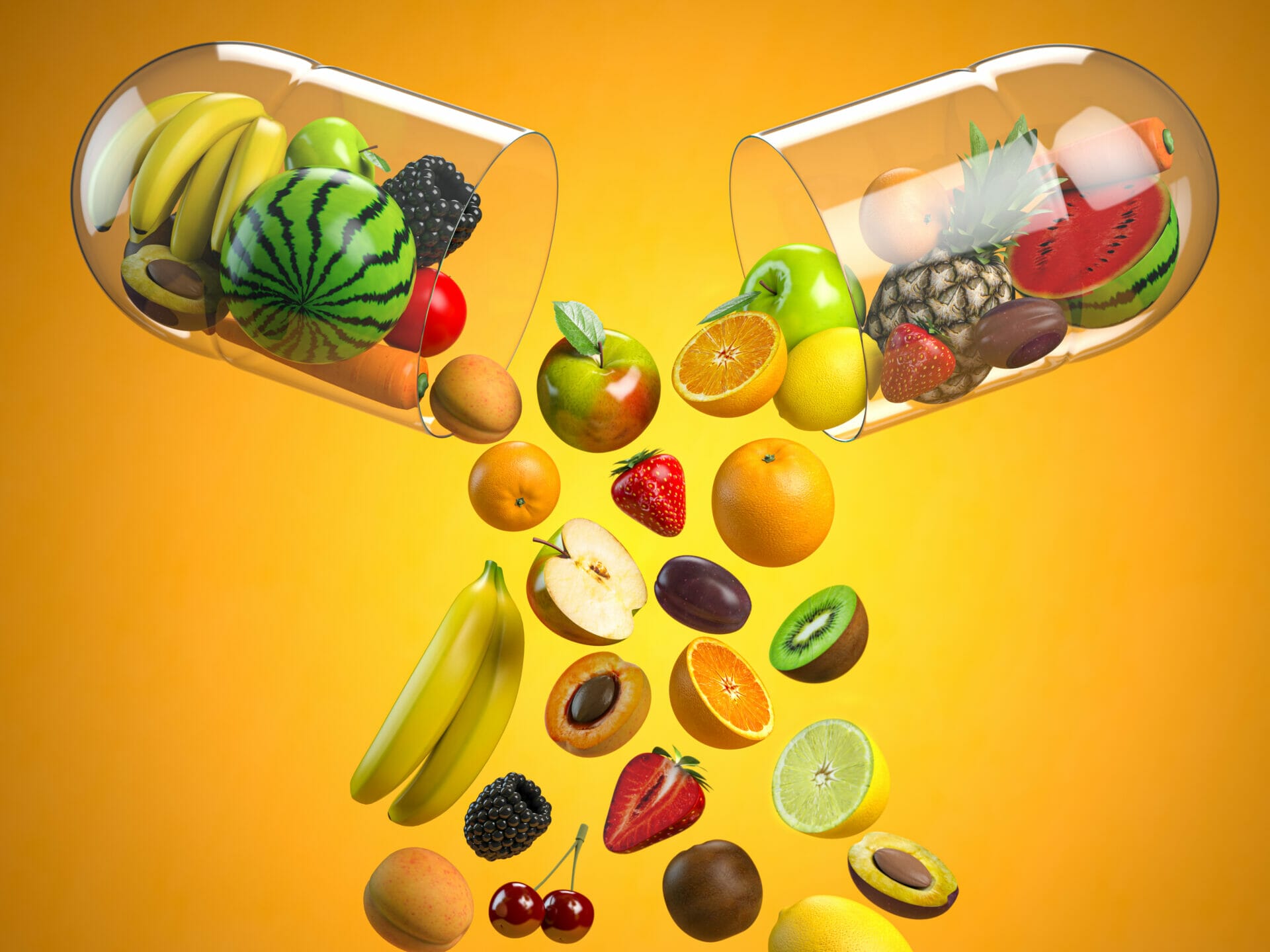Dietary supplements are substances that you may use to supplement your diet with nutrients or to reduce your risk of developing health problems such as osteoporosis or arthritis. Dietary supplements are available as pills, capsules, powders, gel capsules and tablets, extracts, or liquids. Vitamins, minerals, fiber, amino acids, herbs or other plants, and enzymes may be present. The best way to get the nutrients you need is to eat a variety of healthy foods. Some people, however, may not get enough vitamins and minerals from their diet. If this is the case, their doctors may advise them to take a dietary supplement to supplement the nutrients they are lacking.

Should older adults take a dietary supplement?
The best way to get the nutrients you need is to eat a variety of healthy foods. Some people, however, may not get enough vitamins and minerals from their diet. If this is the case, their doctors may advise them to take a dietary supplement to supplement the nutrients they are lacking.
If you are considering using dietary supplements, consider the following:
- Learn
Start understanding everything you can about any dietary supplement you intend to use. Consult your physician, pharmacist, or registered dietitian. A supplement that appeared to help your neighbor may not be effective for you. Be aware of the source of the information when reading fact sheets or visiting websites. Could the author or group benefit from the sale of a specific supplement?
- Remember
Simply because something is labeled “natural” does not imply that it is safe or beneficial to your health. It may have unintended consequences. It may take a medication prescribed by your doctor either weaker or stronger. It may also be hazardous to your health if you have certain medical conditions.
- Inform your doctor
Check with your doctor before beginning to take a dietary supplement to treat any health condition. Do not use a supplement to try to diagnose or treat any medical condition without first consulting your doctor.
- Make wise purchases
Choose brands recommended by your doctor, dietitian, or pharmacist. Don’t buy dietary supplements that contain ingredients you don’t require. Don’t assume that more is better; in fact, taking too many supplements or those with a high concentration of a nutrient can be harmful. It is possible to waste money on supplements that are not required.
- Investigate the science
Make certain that any claim made about a dietary supplement is supported by scientific evidence. Examine for the National Pharmaceutical Control Bureau (NPCB) verified mark. The NPCB checks the identity, quality, strength, and purity of supplements. There is information available on some dietary supplements, but it is important to note that most of the supplements listed have limited evidence of any benefit. If something appears to be too good to be true, it most likely is.
- Be a wise consumer
Some dietary supplement advertisements in magazines, on the internet, or on television promise that their products will make you feel better, keep you healthy, or even help you live longer. It is critical to recognize that there is frequently little if any, science to back up these claims.
Are dietary supplements safe for Malaysian elderly adults?
The short answer is ‘Yes’. In Malaysia, ALL products must be registered with the DCA before being imported, manufactured, sold, or supplied, unless specifically exempted under these Regulations. Dietary supplements are products that are intended to supplement the diet. taken orally in the form of pills, capsules, tablets, liquids, or powders and not marketed as conventional food 2015 Asian Fond Nutrition & Labelling Claims MALAYSIA Ingredients such as vitamins, minerals, amino acids, and others may be regulated. Dietary supplements must have a record of all products that have been registered, as well as the names of the responsible market authorization holders and manufacturers. Monitoring and enforcement, claim regulation, and safety considerations.
Dietary supplements for the elderly
Some vitamins and minerals may be required in greater quantities by people over the age of 50 than by younger adults. Your doctor or a dietitian can advise you on whether you should change your diet or take a vitamin or mineral supplement to ensure you get enough of these:
Calcium: Calcium, in conjunction with vitamin D, helps to keep bones strong at all ages. Fractures can occur in both older women and men due to bone loss. Calcium can be found in milk and milk products (fat-free or low-fat is best), canned fish with soft bones, dark-green leafy vegetables like kale, and calcium-fortified foods like breakfast cereals.
Vitamin D: The majority of Malaysians consume less vitamin D than is recommended. Consult your doctor about including vitamin D-fortified milk and milk products, vitamin D-fortified cereals, and fatty fish in your diet, as well as taking a vitamin D supplement.
Vitamin B6 is required for the formation of red blood cells. Potatoes, bananas, chicken breasts, and fortified cereals all contain it.
Vitamin B12: This vitamin aids in the health of your red blood cells and nerves. While older adults require the same amount of vitamin B12 as other adults, some have difficulty absorbing the vitamin from food. If you have this problem, your doctor may advise you to eat foods fortified with this vitamin, such as fortified cereals, or to take a B12 supplement. Because natural vitamin B12 sources are limited to animal foods, strict vegetarians and vegans are more likely to develop vitamin B12 deficiency. Consult your doctor to see if taking a B12 supplement is right for you.
Recommendations for vitamins and minerals for people over the age of 50
The Malaysian Dietary Guidelines specify how much of each vitamin and mineral men and women of various ages require. As an example:
Every day, take 2.4 mcg (micrograms) of vitamin B12. If you are taking acid reflux medication, you may require a different form, which your health care provider can advise you on.
Calcium: Women over the age of 50 require 1,200 mg (milligrams) of calcium per day. Men need 1,000 mg per day between the ages of 51 and 70, and 1,200 mg after that, but no more than 2,000 mg per day.
Vitamin D: 600 IU (International Units) per day for those aged 51 to 70, and 800 IU for those over 70, but no more than 4,000 IU per day.
Vitamin B6: 1.7 mg per day for men and 1.5 mg per day for women.
Too much of a vitamin or mineral can be harmful at times. Food should provide the majority, if not all, of your daily vitamins and minerals. Consider how much of each nutrient you get from food and drinks, as well as any supplements you take when deciding whether you need more of a vitamin or mineral. Consult a doctor or a dietitian to see if you need to supplement your diet.

Herbal Supplements for older people
Herbal supplements are plant-based dietary supplements. These supplements are taken orally, whether in the form of a capsule, tablet, powder, or liquid. Ginkgo biloba, ginseng, echinacea, and black cohosh are just a few examples. Researchers are investigating the use of herbal supplements to prevent or treat certain health problems, but it is too early to tell if these are both safe and effective. It’s critical to understand that just because a supplement is natural or derived from plants doesn’t necessarily imply that it’s safe.
These dietary supplements, herbs, and nutritional’s have a low risk of drug interactions and may be effective in treating a variety of common conditions that seniors experience, including:
Black cohosh: Many middle-aged women use this supplement to alleviate menopausal symptoms such as hot flashes and night sweats.
Cranberry: According to a National Institutes of Health study, cranberry supplements can help reduce the occurrence of urinary tract infections in older adults.
Echinacea: It can boost the immune system, but it can also interact with chemotherapy drugs. Before using, consult your primary care provider.
Evening primrose oil: A small body of evidence suggests that it may be beneficial for diabetic nerve problems. It is also used to treat eczema, menopausal issues, arthritis, and breast pain.
Garlic is frequently promoted as a means of preventing heart disease, cancer, and infection. It can also help to reduce the symptoms of diabetes, high cholesterol, and high blood pressure.
Ginger: The antioxidant properties of ginger may be beneficial in the treatment of arthritis inflammation and pain. In one study, patients given ginger capsules experienced a significantly greater reduction in knee pain than those in the control group.
American Ginseng: Ginseng has been shown in studies to have anti-aging, diabetes, and cancer properties, as well as the ability to heal wounds and ulcers.
Milk thistle: A plant-based substance that has been found to treat common liver problems as well as protect the body from cell-destroying substances known as free radicals.
However, there is a high risk of drug interactions with these supplements:
Fish oils may interact with hypertension medications, Xenical, and some anticoagulant/antiplatelet medications.
Ginkgo: Although it is one of the world’s most popular supplements, research indicates that it can interfere with the pharmacokinetics of several drugs, including aspirin, anticonvulsants, diuretics, antidepressants, and blood thinners.
Goldenseal: This herb has been used for centuries for its healing, antiseptic, and germ-killing properties, but it is also a strong inhibitor of both CYP3A4 and CYP2D6 enzyme activity, which can interfere with many medications.
Antioxidant Dietary Supplement
Antioxidant supplements contain concentrated forms of antioxidants, which are free radical stabilizers. When you exercise and digest food, your body naturally produces free radicals. The main antioxidants that help your body regulate free radicals are vitamins A, C, and E, as well as the mineral selenium. It is widely assumed that taking antioxidant supplements prevents free radical damage to the body’s cells, thereby promoting longevity and disease prevention. Free radicals are also produced by environmental factors such as UV exposure, air pollutants, tobacco smoke, and industrial chemicals such as pesticides. Here are a few examples of common antioxidants that you should include in your diet:
Beta-carotene is found in dark green and dark orange fruits and vegetables. Selenium is a trace element found in seafood, liver, meat, and grains. Citrus fruits, peppers, tomatoes, and berries are high in vitamin C. Wheat germ, nuts, and sesame seeds, as well as canola, olive, and peanut oils, contain vitamin E.
Keep the following in mind when using dietary supplements.
- Dietary supplements, like conventional medicines, can have side effects, cause allergic reactions, or interact with prescription and non-prescription medications, as well as other supplements you may be taking. A side effect or interaction with another medicine or supplement may exacerbate other health problems.
- Dietary supplements may not be manufactured in a standardized manner. As a result, how well they work or any side effects they cause may differ between brands or even between lots of the same brand. The form of supplement sold in health food or grocery stores may differ from the form used in research.
- Except for vitamins and minerals, the long-term effects of the majority of dietary supplements are unknown.



It’s going to be ending of mine day, except before
end I am reading this impressive post to increase my experience.
Thanks for your compliment and we’re glad that it made your day! Don’t forget to bookmark and/or subscribe, cheers!